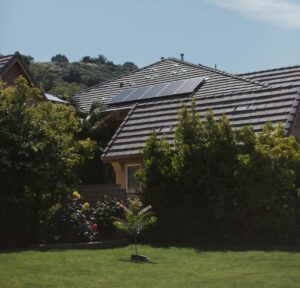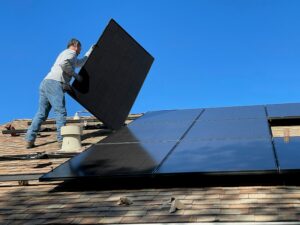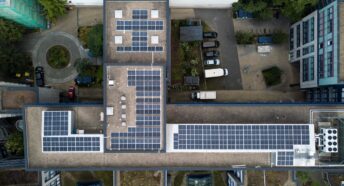Rooftop Solar going ‘Cheep’
Well, the CPRE campaign for Rooftop renewables was one of the hero campaigns in 2023 and continues into 2024, with a focus on ensuring positive solutions to enable all of us to generate strong cases for the rapid expansion of solar panels.
This is both on new and existing rooftops, in residential and commercial areas so that we can all help tackle the climate emergency.
With 2024 going to be an election year in the UK , we are expecting to see strong commitments from all the political parties in their manifestos to planning and building regulations reform, in order to show that they are committed to progressing towards our net zero promises to the world by 2050.
We have already seen some progress in both a recent CPRE survey and the revised National Planning Policy Framework (NPPF) and the open consultation on ‘The Future Homes and Buildings Standards: 2023’.

The survey of nearly 3000 CPRE supporters showed widespread support for rooftop solar – both as a government priority and on new build homes. In total 95% of respondents felt that the government should take a ‘rooftop first’ approach when rolling out solar renewables across the country, while 97% agreed that rooftop solar should be a standard requirement on all new housing. The biggest barrier for most people is still the cost of the installation, even though the costs have come down over the last few years this is still a fairly large capital outlay for most families.
We in CPRE need to keep pushing the government in power to offer solutions to help out in this area, as the majority of people who have installed them highlight the savings in terms of energy costs.
One cannot envision the current world where energy costs will reduce next year (we have all seen our energy costs escalate quite drastically over the last 2 years), so is it making a reasonable assumption that these will continue to increase year on year? Now you could actually say having an ability to generate / store your own energy may well offer some stability in future energy costs. Solar renewables offer to give this to both domestic and commercial properties, so why would we not want to promote this.
The NPPF and specifically the open consultation under section 4. Performance requirements for new buildings. The Future Homes and Buildings Standards: 2023 document is asking for feedback on 2 options for the Rooftop Solar area.
Option 1- being recognised as the most cost-effective option to ensure maximising the Carbon targets (and hence getting to net Zero), but it has an additional upfront cost for developers, who will undoubtedly pass this onto the prospective buyers. Option 2- takes a minimal approach to being ‘zero carbon-ready’ compared to the ‘10 year old 2013 energy requirements’, but it does aim to get 75% of the carbon savings. Clearly the driving force for option 2 is a reduced cost to the developers in building the commercial and domestic properties.
Everyone will need to balance the two options, but with rooftop solar being a long-term investment. Should we not be looking at the best option longer term to future proof our planet for the next generations now?
The final questions we need to ask all ourselves is around should we be putting solar panel on greenfield
sites and how can we still push to have the same solar renewables retrofitted to commercial properties. Clearly there is both a need and incentive for new solar farms (as there is also for wind farms), and how can we in CPRE support or oppose what may well be good solutions. The same for retrofitting Solar renewables to Commercial properties as we see some companies and local authorities looking longer term at energy costs. Tune in next month when we can expand on these items and look at some local examples of what is happening in Buckinghamshire. In the meantime if you have any questions of input do not hesitate to drop us a line, it’s good to talk as a famous bird once said.
The Future Homes and Buildings Standards: 2023 consultation – GOV.UK







